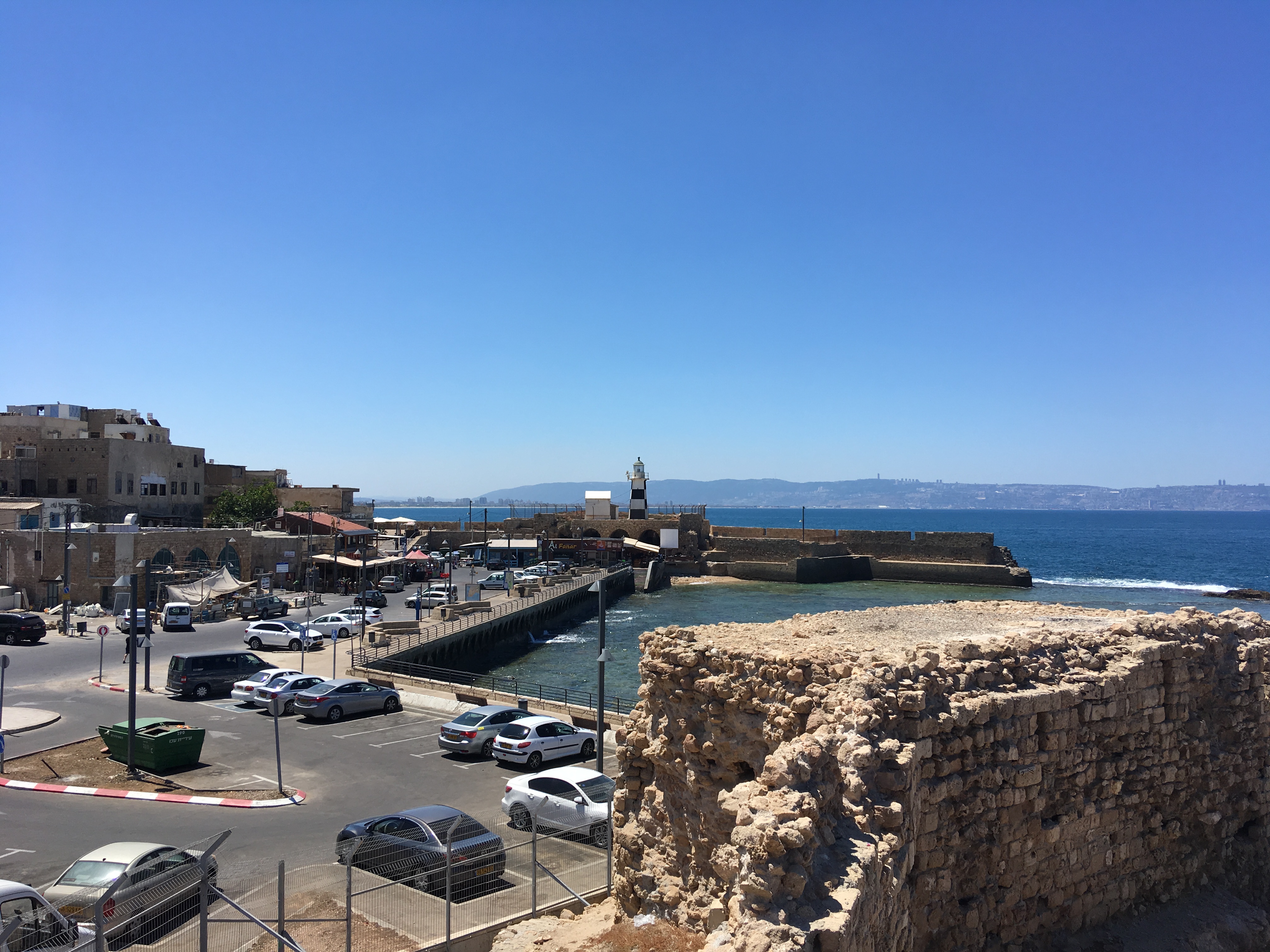We talk a lot about echoes in archaeology, and repetition. Indeed, every culture is as unique and irreplaceable as a thumbprint, but human behavior and reaction allows for somewhat of a framework, or a rhyming scheme to follow, if you will. For example, to anyone familiar with the early Crusades, the personnel list of my excavation area reads like the set-up to a joke:
“Two Poles, a Bohemian German, some English folk, and several Francophones walk into the Holy Land, for the purposes of saving and discovery.”
Of course, our “saving” is through means of data and conservation, not the ill-conceived “rescuing” of Transjordan from Muslim forces. The black humor in the joke is poignant, however, and our trip itself follows an exceptionally beaten path from the West to the Eastern Mediterranean.
Clearly, however, our mission is much different in spirit and letter, worn joking aside. The air of Akko hangs heavy with swollen heat and memory. In the false dawn on the Tel, sleep-deprived feet stumble through five hundred years in three steps. In the sweet apple smoke of hookah in the Old City, I ward off ill fortune in a very modern fashion by knocking on a door that swung open first in the Ottoman period. The cats are the same, I presume. Contempt for a clumsy foreigner seems eternal.
The point to this shambling paragraph of anecdotes is that, despite seemingly radically different trips, the passage of time allows for human endeavor to repeat itself. Like a cosmic space-temporal game of Whisper Down the Lane, we of the modern day repeat the footsteps of the initial endeavor, carrying with it nearly a thousand years of variations and permutations. You can’t blame us though, when memory is less of a ghost and more of the chipping of paint on railings, and the dangerously smooth stones worn by uncountable feet. The seduction of adventure and discovery is as universal as any other human standard, most of all when it walks the streets with you as it does in Akko.

No Comments